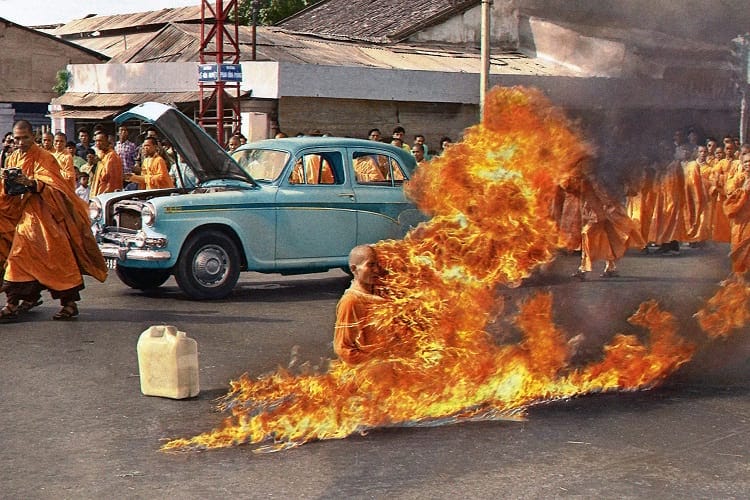its easier for a Buddhist to see the value in this due to there being no true self that is getting sacrificed and due to the notion of reincarnation opening up the possibilities for future acts of good.
in a judeo Christian context its harder to reconcile as they see the self and this life as a gift from God and our only chance at living a life here in physical form.
two very different theologies with very different outlooks.
I dont think the theological angle fundamentally makes much difference.
At first glance it does seem that those who have the strong belief or to them knowledge of reincarnation, seem more willing to make these acts of self sacrifice.
However, many people have also been willing to sacrifice their lives or put themselves at immense risk coming from a Judeo-Chistian background. If they believe the act is fundamentally good and justified (as I believe he felt the case is here with his intent) then they believe in a reward when resurrected eternally hereafter.
Even those who profess no particular faith are influenced usually by some version of Platonism which is implicit throughout much of Western society, so they are sacrificing themselves for an 'eternal principle'.
This can equally apply to atheists, for even if one does not believe in any form of continuity after death, if one feels ones current life is of no worth or is in support of harm or evil and against ones values, the thought of not being here may arise and in this case ending it while making a stand for principles one believes in.
The only ones who wouldn't even consider such an act are what is common nowadays, the hardcore self centred hedonist materialists who see no worth in life other than what benefits them and the temporary pleasures they can accumulate.

